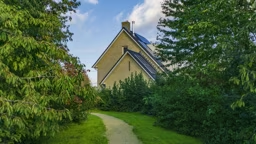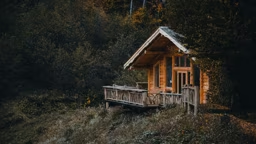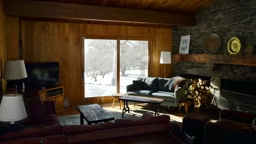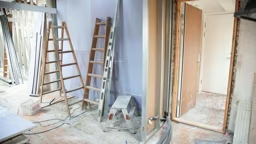
Buying a cabin in a rustic landscape gives you a chance to get closer to nature. Whether you intend to live there full-time or visit on weekends and vacations, these spaces can enrich your life. Yet, buying a new or ready-to-occupy cabin isn’t necessarily within everyone’s financial means.
One alternative option is to look for a fixer-upper cabin. Less costly than their pristine counterparts, these projects may be more suited to your budget. Nevertheless, it's important to go into these situations with your eyes open. With a mindful and organized approach, you can get a beautiful cabin that serves your family for years to come.
Finding a Fixer-Upper
It’s important to recognize that there are pros and cons to buying a fixer-upper rather than a ready home for your cabin getaway. They tend to cost less as an initial investment, which is great, though you have to be mindful of potential hidden costs from lengthy renovations. You may also have less of a bidding war as more people want homes that are ready to go. Conversely, it takes longer until you actually get to enjoy your cabin. So, how can you find a fixer-upper that leverages the pros and has fewer of the cons?
Firstly, wherever possible, collaborate with reputable agents. Some even specialize in fixer-upper opportunities and have a good general knowledge of the extent of renovation work each of their properties may need. This means you can talk to them about the scope and ambition of the cabin project you’re willing to take on, so they can show you relevant properties.
Being mindful when you’re viewing properties is also a good step. Consider whether the issues with the cabin are more structural or cosmetic in nature. Bear the climate of the location in mind, too. For instance, if a cabin requires extensive renovation work, a location in a warmer climate that gets a lot of daylight throughout the year may well give you more time to gradually attend to significant repairs.
Inspecting and Prioritizing
Inspections are an essential part of your process before purchasing your fixer-upper cabin. They help you to have a good idea of any potential hidden issues that affect your renovations. Indeed, some mortgage providers and home insurers will require inspections. This is not usually something that you do yourself. Work with experienced professionals — real estate agents can usually make recommendations here — to ensure a thorough and accurate representation.
Essential elements to inspect when buying a fixer-upper include:
- Structural elements: Unless you’re planning on tearing down the property entirely, it’s important to understand the state of the fixer-upper’s structure. This will involve an inspection of at least the foundations, load-bearing elements, exterior walls and the roof. Not only are these important to ensure safety, but they also tend to be among the priciest aspects to repair.
- Heating, ventilation, and air-conditioning (HVAC): Inspecting HVAC systems before buying a property is a must as they are key to comfort and safety in your home. It’s important to check functionality, such as compressor and fan motors, filters and refrigerant pressures. Safety checks are also essential, like ambient carbon monoxide testing and combustion potential. By making sure you go beyond standard checks, you can uncover hidden costs and dangers in your choice.
From here you can start prioritizing the items for renovation. This is not just useful on a practical level that helps keep you organized, but it also enables you to better plan your budget. You can plan to dedicate funds to the most immediate needs, and gradually build funds for less urgent changes. Doing this before you buy the property gives you a good sense of how suitable this project is for you and your family, too.
DIYing vs Contracting
Once you’ve bought a property, the next point of focus is how you intend to set about transforming your rustic getaway. Among the reasons people buy fixer-uppers is to do the actual fixing themselves as a project. Nevertheless, it’s important to seriously take some time to consider whether all your renovations are right for DIY, or whether a contractor might be the best route forward.
The considerations here go beyond the money you have available, including:
- Your abilities: It’s important to be honest with yourself about your renovation abilities. If you already have experience in some renovation activities, it’s perfectly reasonable to consider you may be able to tackle these. If you’re uncertain, research the skills required and whether you have these or can learn them. Nevertheless, if you have any doubts at all about actions that are integral to safety — like structural or electrical work — it’s often best to get a contractor.
- Time availability: You might be able to perform many renovations, but do you have the time to commit to them? Compare your bandwidth to when you intend to use your cabin for the first time. By plotting out some milestones and realistic timescales, you can get a good impression of how likely you are to be able to achieve a renovation alone or whether you’ll need a contractor.
Just because you use a contractor for some job, this doesn’t mean you’re not making a personal mark on your fixer-upper cabin. If you’re not technically minded, you can also take care of the cosmetic aspects of the property yourself and even involve the rest of your family in. Painting walls, ensuring the decor fits in with the local surroundings, and choosing furniture are still important parts of completing a fixer-upper cabin’s transformation.
Finding and transforming your perfect fixer-upper cabin is challenging, but achievable. Ensure you arrange thorough inspections to identify the scope of your project and take choices between DIY and contracting seriously. Don’t forget to take some time to enjoy the process, too. It can be easy to get caught up in the work and research, but it’s also a chance to develop something beautiful for your family.










